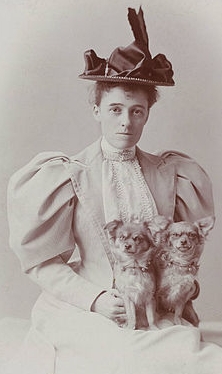Human Nature
Book Details
| Title: | Human Nature | ||||||||||
| Author: |
| ||||||||||
| Published: | 1933 | ||||||||||
| Publisher: | D. Appleton and Company | ||||||||||
| Tags: | fiction, short stories | ||||||||||
| Description: | This latest in the long canon of Mrs. Wharton's books is called "Human Nature", but in spite of a spacious and all-inclusive title it is actually devoted to the presentation in five short stories of a limited and familiar Whartonian gallery of character studies. Nearly half the volume is "Her Son." In it, one of those New York dowagers existing at present only in the pages of this author's fiction, seeks and apparently finds her illegitimate son, who has been brought up in Europe by foster parents. The depressing tale of her victimization by a group of adventurers is admirably told, with all of Mrs. Wharton's facile mastery and technique. The description of the rivalry between the two "mothers" is superbly ironical, and as always the author is at home in her handling of the European scene, and the expatriate character. "The Day of the Funeral" is sombre, "A Glimpse" an interesting study in artistic temperament, "Joy in the House" and "Diagnosis" satiric tragedies of modern married lif [Suggest a different description.] |
||||||||||
| Downloads: | 100 | ||||||||||
| Pages: | 144  |
Author Bio for Wharton, Edith

Edith Wharton (born Edith Newbold Jones; January 24, 1862 – August 11, 1937) was a Pulitzer Prize-winning American novelist, short story writer, and designer. She was nominated for the Nobel Prize in Literature in 1927, 1928 and 1930. Wharton combined her insider's view of America's privileged classes with a brilliant, natural wit to write humorous, incisive novels and short stories of social and psychological insight. She was well acquainted with many of her era's other literary and public figures, including Theodore Roosevelt.
The Age of Innocence (1920) won the 1921 Pulitzer Prize for literature, making Wharton the first woman to win the award. The three fiction judges—literary critic Stuart Pratt Sherman, literature professor Robert Morss Lovett, and novelist Hamlin Garland—voted to give the prize to Sinclair Lewis for his satire Main Street, but Columbia University’s advisory board, led by conservative university president Nicholas Murray Butler, overturned their decision and awarded the prize to The Age of Innocence.
Many of Wharton's novels are characterized by a subtle use of dramatic irony. Having grown up in upper-class, late-nineteenth-century society, Wharton became one of its most astute critics, in such works as The House of Mirth and The Age of Innocence.--Wikipedia.
Available Formats
No book directory. Upload has not been completed.This book is in the public domain in Canada, and is made available to you DRM-free. You may do whatever you like with this book, but mostly we hope you will read it.
Here at FadedPage and our companion site Distributed Proofreaders Canada, we pride ourselves on producing the best ebooks you can find. Please tell us about any errors you have found in this book, or in the information on this page about this book.